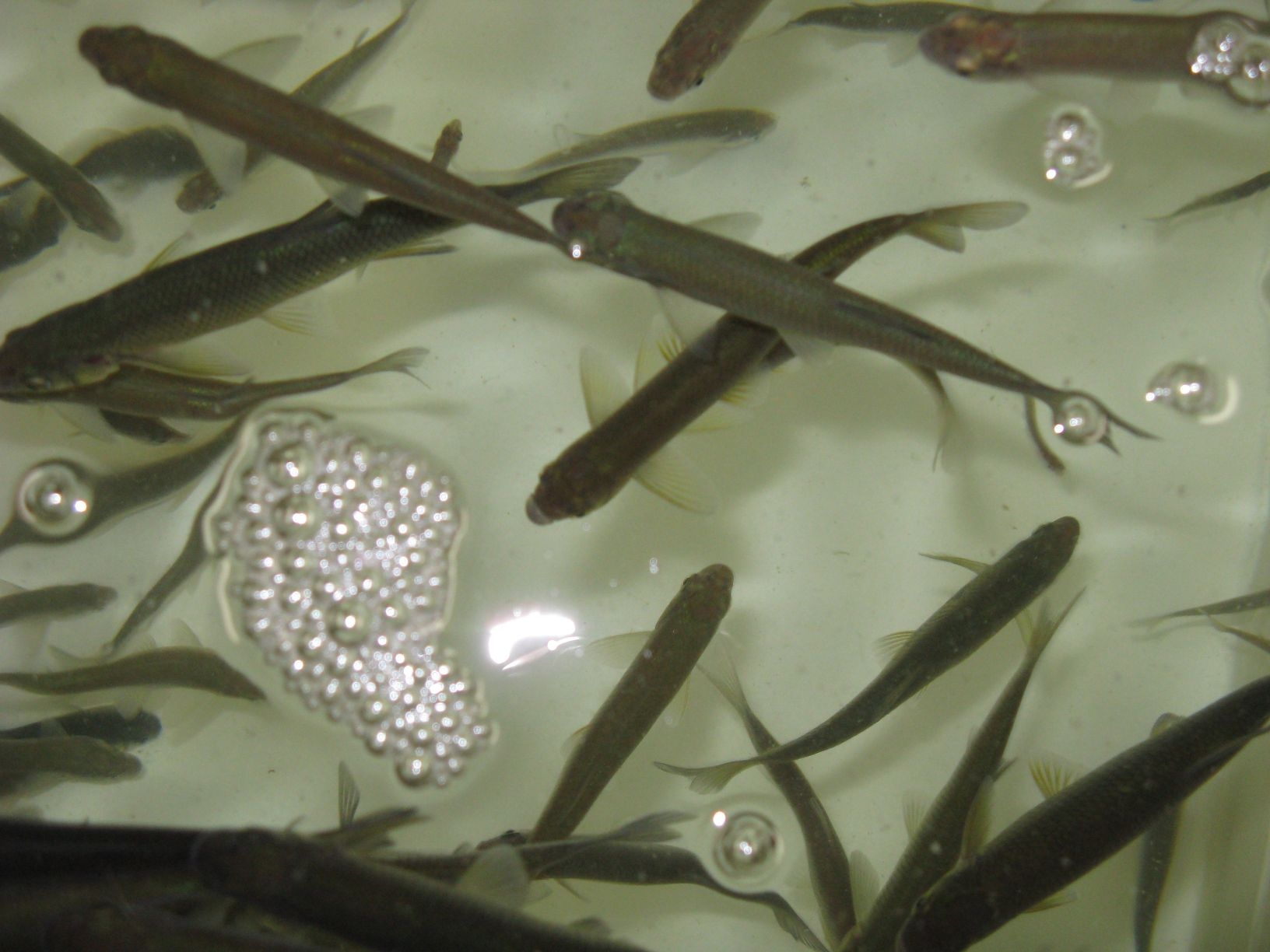 (Host) A big debate is brewing in an unlikely place – Vermont’s bait shops.
(Host) A big debate is brewing in an unlikely place – Vermont’s bait shops.
Emergency rules adopted last fall have placed limits on the sale of wild bait because they may be infected with a fish-killing virus.
That’s not sitting well with bait shop owners, who’ve been forced to make a critical business decision.
VPR’s Melody Bodette has more.
(Sounds of bait shop) "These are the fat head here…"
 (Bodette) The big joke around George LeClair’s Hinesburg bait shop these days is that he should be getting hazard pay. He’s on the front lines of the "bait debate."
(Bodette) The big joke around George LeClair’s Hinesburg bait shop these days is that he should be getting hazard pay. He’s on the front lines of the "bait debate."
(LeClair) “A lot of people are kind of (Pause) upset with it, but they’ll get over it, hey, it’s the thing we’ve got to do, we’re either going to have no fishing or hope that we can save our fisheries."
(Bodette) LeClair stopped selling wild baitfish when emergency rules went into effect. Here’s the issue, wild baitfish, like minnows, can be infected with a deadly virus. They’re commonly trapped from Lake Champlain and now have to stay there. Farm-raised baitfish are breed in tanks and safe for any lake or pond.
The purpose of the new rules is to prevent wild bait from spreading "viral hemorrhagic septicemia" to fish outside of Lake Champlain.
Shawn Good is a state Fisheries Biologist.
(Good) “Really in the history of studying fish diseases, there’s never been a fish disease known that has been able to infect this many individual species of fish. Right now I think the complete tally is approaching 40 different species.”
(Bodette) The virus has killed hundreds of thousands of fish in the Great Lakes, but it hasn’t been found here yet
Shawn Good says small lakes and ponds are at a greater risk than Lake Champlain because of size.
(Good) “In a fish kill situation, Lake Champlain has a benefit in that it’s very large and it’s very diverse it has almost 90 species of fish in it. And maybe large fish kills of maybe several thousand fish of different species occurring over time will be very detrimental to Lake Champlain but because of it’s size it might be able to rebound quicker."
(Bodette) Bait dealers who chose to continue selling wild bait fish are finding that it’s not economically feasible to cater exclusively to fisherman headed to Lake Champlain. Especially this winter, when the big lake hasn’t frozen and ice fishermen are headed to smaller lakes and ponds.
Bill Sullivan of Dockside Outdoor Supply in Colchester says when the emergency rules were passed he quickly decided to keep selling wild bait. But business fell off dramatically. He’s closing one shop and will stop selling wild minnows at another.
(Sullivan) You have to make a triage decision, do you want your customers to be Lake Champlain only fisherman and not sell to the Memphramagog fisherman, and Lake Carmi and Fern Lake…because you can’t have it both ways. Your bait can be used in Lake Champlain or you can go statewide and not have the variety, the species of minnows that fisherman really have grown to want."
(Bodette) Some longtimers do prefer fishing with wild bait. They think shiners and minnows are more effective.
So come spring – with wild bait fish becoming harder to find – those fishermen may have to find other ways to catch a walleye.
For VPR News, I’m Melody Bodette.
(Host) The new bait fish rules expire on February 18th. The Fish and Wildlife Board will be holding hearings around the state before permanent rules are adopted.
Meeting dates
Jan. 29, 6 p.m., St. Albans Town Education Center
Jan. 30, 6 p.m., Springfield High School
Feb. 4, 6 p.m., Montpelier High School
Feb. 5, 6 p.m., Rutland High School
Feb. 6, 6 p.m., Lake Region Union High School, Orleans